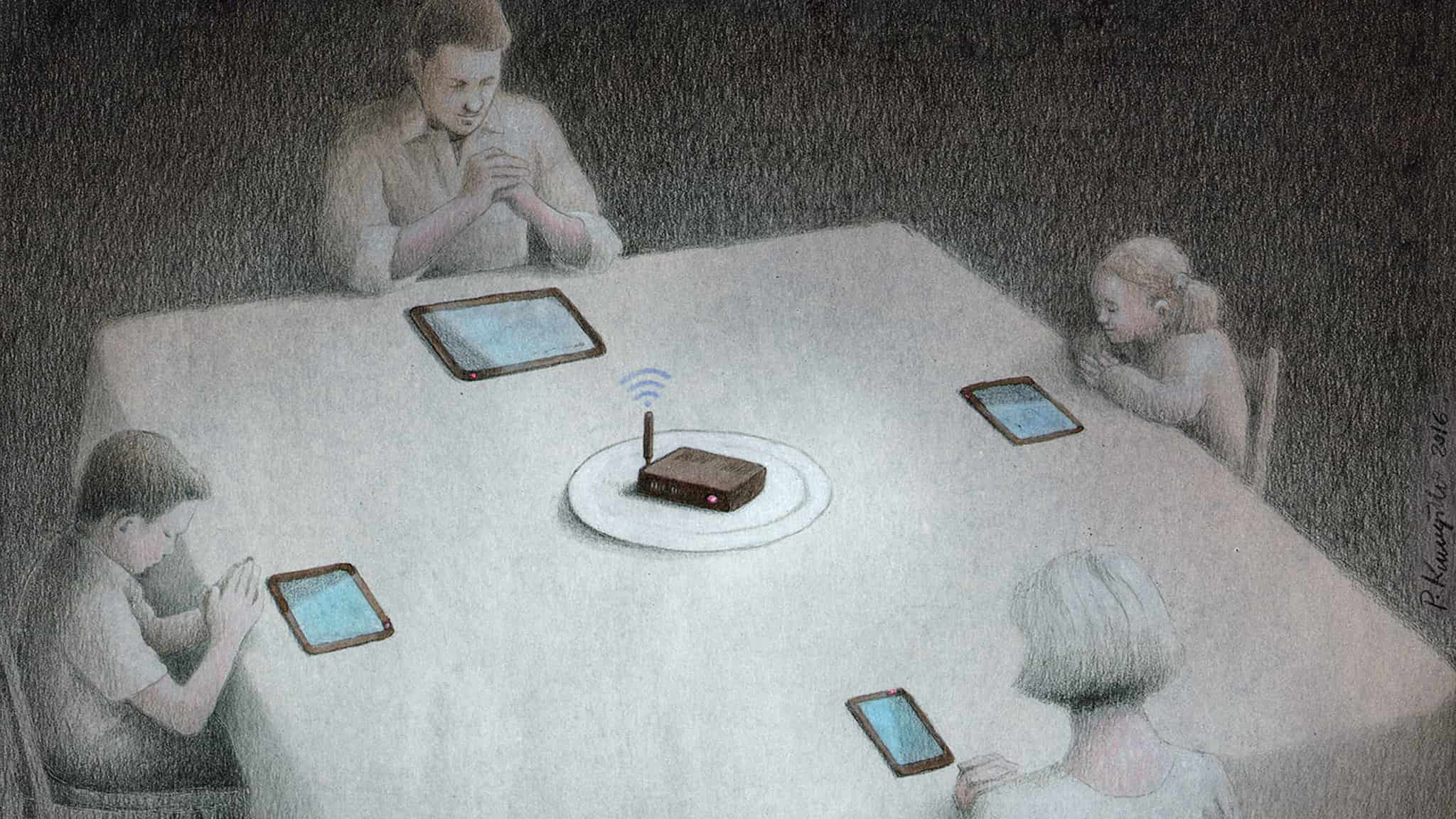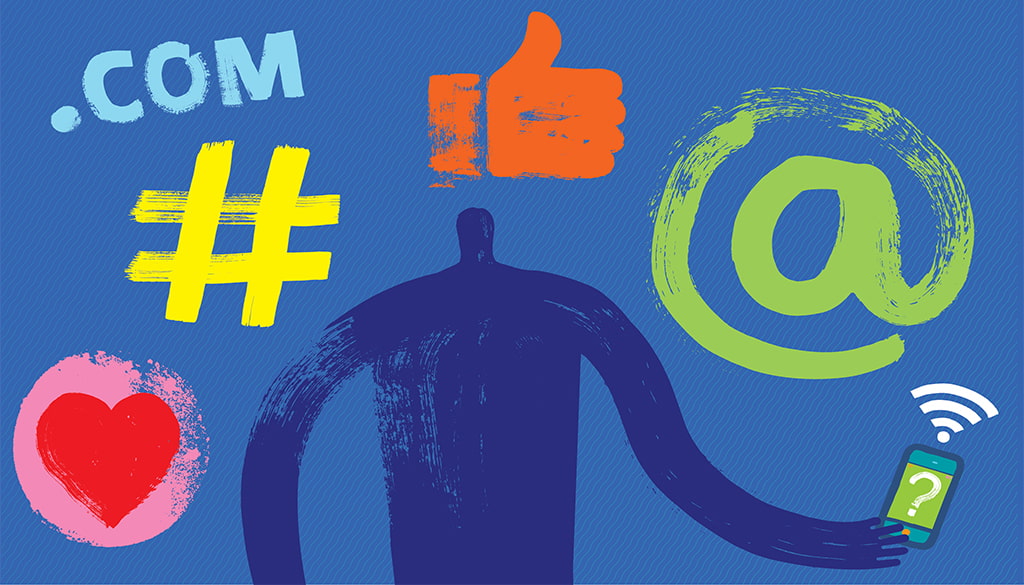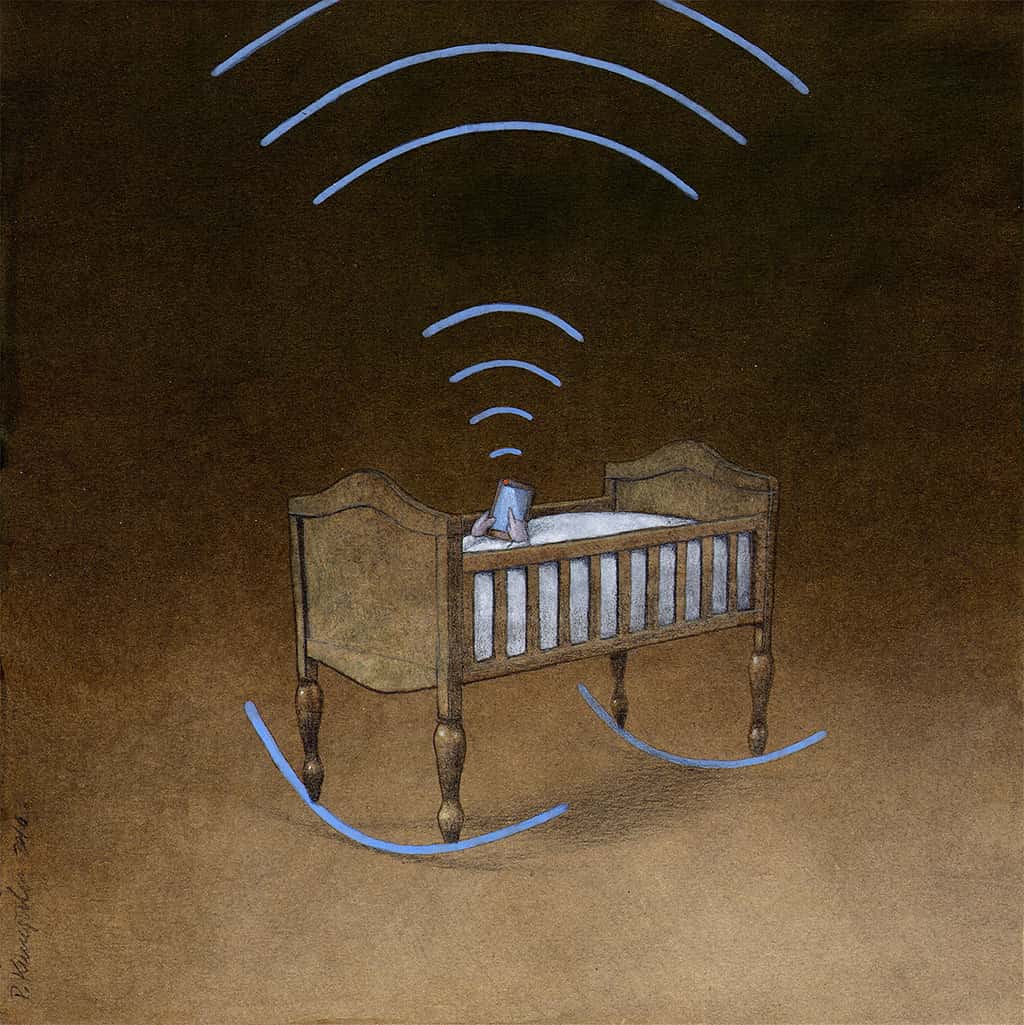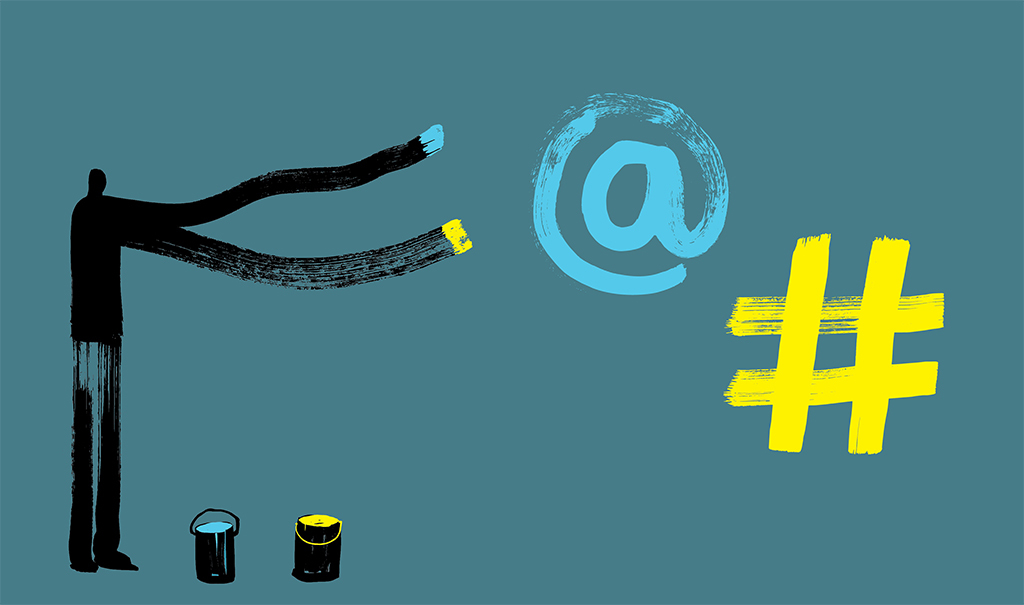Phubbing is the practice of ignoring your companion or companions in order to pay attention to your phone or other mobile devices.
Connected Without Connection: Does Technology Make Us More Alone?

The damage that social media — and apps on smartphones and tablets — is doing to us and our relationships is worrying, to say the least.
- According to the Pew Research Center, Americans check smartphones at a staggering 80 times a day, which is roughly every 12 minutes.
- Technology has certainly made digital communication easier — in terms of texts, FaceTime, and email — but our physical connection to one another is suffering.
- The way we use our devices, specifically to browse social media, makes us feel even more alone because we compare ourselves to edited and filtered images that give the impression of busy social lives filled with friends and family.
- We can’t eliminate all technology but we can establish boundaries on how much we use it.
Struggling with loneliness or having a mental health crisis?
- Suicide Prevention Lifeline: 1-800-273-TALK (8255); Deaf or hard of hearing dial 711 before the number or connect via online chat
The moment my son is asleep, I return to the living room, disheveled and exhausted, stepping obliviously over toys and ignoring dirty dishes to flop down on the couch and scroll through my phone like some dead-eyed drug addict getting her fix.
Before I know it, thirty minutes have passed and I feel nothing but jealousy at the seemingly perfect lives of strangers on Instagram and loneliness because I am not enjoying dinner with friends in some trendy rooftop restaurant.
Even when my husband comes home from work, instead of engaging in conversation, I struggle to pry my eyes away from the device in my hand.
Instead of making us feel connected and included, these technologies actually provoke feelings of isolation and detachment.
Furthermore, by being glued to our phones the whole time, we’re making those around us lonely too, including our children, and that’s the scariest thought of all.
How Technology Has Taken Over Our Lives
Our technology addiction is in uncharted territory. We don’t know yet how damaging it is but it is rupturing our ability to communicate on a deeper level. And we do know that the chemicals that are released when we use social media are the same as in drug addiction. — Dr. Anastasia Parsons
It is impossible to escape technology in today’s society. We rely on it for almost everything that we do.
Do you even remember a time when we used maps? Physical pieces of paper that were kept folded up in our bags and glove boxes that we diligently unfolded and used to find our way. Imagine.
According to the Pew Research Center, a staggering 81% of Americans own a smartphone.
We are addicted.
The same survey found that 31% of those questioned felt anxiety when separated from their phone and 60% felt stressed if their phone was off or out of reach.
Nomophobia, a fear of being without our phones, is on the rise.
The irony is, we often use our phones as a ‘security blanket’ to relieve feelings of loneliness or awkwardness in anxiety-producing social situations.
But staring at your phone means you’re further excluded from those around you, the very people who could help alleviate feelings of loneliness.
However, experiencing nomophobia is unsurprising when you realize just how much we rely on our phones.
We use them for shopping, exercising, browsing, banking, listening to music, gaming, reading, traveling, booking restaurants and vacations, photography, meditating, learning, dating, working, relaxing and, the very thing they were originally designed for, communicating.
There is no doubt that technology, specifically smartphones and tablets, has made our lives easier.
For instance, it provided a means of maintaining social contact with one another while people adhered to extensive social distancing and shelter-in-place orders during the COVID-19 pandemic.
According to a 2016 survey, 52% of Americans believe technology has had a positive effect on society, specifically in improving the ease and convenience of sharing information.
Personally, living thousands of miles away from family and friends, technology has allowed me to stay in touch with them as easily as if I lived down the street.
My parents can FaceTime their grandson at the touch of a button and I can send photos and videos as often as I like.
In terms of staying in touch, technology has clearly made us more connected to one another.
However, it is our preoccupation, if not outright obsession with these devices, that is causing feelings of isolation, simply because we are prioritizing our online communities over face-to-face communication.
I spoke with Dr. Anastasia Parsons, a New York-based psychologist who specializes in marriage and family therapy.
She describes how technology has crept into every aspect of our lives and is impacting our relationships.
“Our technology addiction is in uncharted territory,” she tells me.
“We don’t know yet how damaging it is but it is rupturing our ability to communicate on a deeper level. And we do know that the chemicals that are released when we use social media are the same as in drug addiction.”
She adds that the problem is we now have the perfect excuse to be on our phones at all times for work. “I just have to check this email. I just need to reply to my boss.”
Dr. Parsons says: “We’re not recognizing that addictive behavior. It’s not like our parent’s generation where they left work and weren’t contacted in the evenings or over the weekend. We are always available.”
And even the Silicon Valley insiders are warning us to get off our phones that are as addictive as slot machines and are “tearing apart our social fabric.”
Is Our Addiction To Technology And Social Media Making Us Lonely?

I’m certain every single one of us has found ourselves in a room or on public transportation where everyone around you is on their phone.
This is the problem with technology; it eliminates boredom. And yet it encourages isolation.
Every spare moment that, before phones existed, would have been used to engage in conversation with a stranger in an elevator or on the bus, is now filled by the device in your hand.
We don’t speak to the people around us, even if they’re our family members or friends.
We don’t look up. We don’t engage with our surroundings and our community. We appear unapproachable and ‘busy’. And we feel lonely as a result.
Research suggests that scrolling social media is associated with increased loneliness and depression, which are often symptoms of FOMO (or the ‘fear of missing out’).
I spoke to author, international speaker and mom of four Margie Warrell who specializes in coaching business leaders.
“We are having an epidemic of loneliness,” she told me. “As the quantity of our friendships online has gone up the quality and the depth of real friendships has eroded.”
A study of more than 20,000 adults by Cigna, found that nearly half of respondents sometimes felt lonely, and only 53% said they had meaningful face-to-face interactions every day.
The problem with using technology, particularly social media, so regularly is that the interactions we have on it aren’t real.
We might have hundreds of contacts and followers, but would we actually turn to them with a problem?
According to Margie, our phones take us out of the real world.
She told me: “People today are more connected than ever but feel more isolated and disconnected than ever. Research shows that fewer people today feel that they have one person that they confide anything to than 20-25 years ago.”
I asked her why she thinks technology, specifically social media, is making us feel more alone. She believes it is all to do with the fake personas that we create online.
She said: “Social media appeals to our vanity. It drives us to create social masks that we want people to see. But the more energy we put into creating this highlight reel of our lives, the more we struggle to reveal the truth of our lives, behind the mask and the selfies and the filtered images. Over time, we become a stranger to ourselves.”
She adds: “People struggle to connect with people offline because building authentic, meaningful offline relationships requires vulnerability. Social media creates a divide between what people think they are seeing and the real truth of our lives.”
It’s easier to upload a heavily filtered image of yourself having a wonderful time at an expensive restaurant than admit that you can’t really afford to eat there or that you had an argument with a friend on the cab ride home.
According to another study, those who used social media the most were two to three times more likely to experience perceived social isolation compared to those who used social media the least.
The study’s researchers also found that the participants who are online most frequently have three times the odds of perceived social isolation as those who went online less than nine times a week.
Interestingly, it is also the way that we use social media that makes us feel lonely.
In essence, there are two pitfalls of social media use: social snacking and self-comparison.
- Social Snacking
Social snacking involves browsing through profiles, watching people’s Instagram stories, reading people’s comments and posts without contributing.
Dr. David Ludden, professor of psychology at Georgia Gwinnett College, writes:
“Social snacking may feel like social engagement, and while you’re doing it you might temporarily forget your own feelings of loneliness. But just as junk food makes you feel both bloated and empty afterward, social snacking only leaves you with much time wasted and more loneliness than before.”
In a study from the Journal of Experimental Psychology, the act of passively scrolling through social feeds was correlated with an overall lack of interest, concentration problems, fatigue, and loneliness.
- Self-Comparison
This is certainly the trap I fall in to.
Gazing longingly at posts on Instagram, contrasting what I see with how I am living my life.
Other people’s lives look so much more fun and exciting on Instagram and Facebook than my own.
Often these images are filtered and edited, and I know that because I do it too!
But that doesn’t stop me from comparing what I am doing with my life at that moment, which is more often than not sitting alone on the couch eating cookies.
Of course, there is a healthy way to use social media, and that is to examine what you are using it for.
Are you using it mindlessly and unconsciously? Or are you actually using it to connect with others in a meaningful way? More on this later.
How Does Our Reliance On Technology Increase Feelings of Loneliness?

Technology can be incredibly useful, especially as a parent.
There are fantastic communities of moms on Facebook who support one another through all sorts of parenting predicaments and I have made friends for life thanks to an app called Peanut, which is essentially Tinder for moms.
Kidspass is a fantastic app that allows you to choose from a plethora of age-appropriate activities for your child in your area. It is a life-saver on a cold, rainy day.
Not to mention the various gadgets that make parenting easier; everything from apps that track your baby’s sleeping and feeding schedule, to video monitors that allow you to play music to lull your baby to sleep.
And what parent hasn’t reached for their phone to pacify a cranky baby with songs or cartoons on a long car journey?
But I would argue that since becoming a mom, my addiction to technology, in particular my phone, has become more pronounced.
You’re not supposed to say this, but looking after a baby is actually quite boring. And can be surprisingly lonely.
In the early days, when my husband had gone back to work, finding myself alone with this tiny little thing asleep on me, I would reach for my phone to cure the boredom.
You turn to this device to entertain you, to connect you to someone, anyone! But, more often than not, scrolling through social media can simply increase feelings of loneliness.
I distinctly remember breastfeeding my son at 3 o’clock in the morning, looking through pictures of a friend’s vacation in Ibiza on Instagram to keep myself awake.
I suddenly felt miserable.
She had not messaged me to check in on how I was doing after the birth or even offer her congratulations and yet here she was, posting all these images of her amazing life, dancing in a glamorous bar with a cocktail in her hand.
Although I was over-the-moon at becoming a mom, I found myself comparing my life to hers.
Why wasn’t I in a bar in Ibiza? Have I wasted my youth? Will I ever drink cocktails again?!
I should have been focusing on my newborn son instead of feeling jealous of a friend’s seemingly hedonistic lifestyle.
Social media removes you from your surroundings, mentally and physically. It distracts you from real life.
I should have been sharing a precious, intimate moment with my baby boy, but my mind was elsewhere.
Although my son was far too young to notice what I was doing when I used my phone around him as a baby, now that he’s a toddler, he’s well aware of my addiction to my phone.
I have found myself absorbed by my phone, thinking that my son is playing happily, only to look up to see him watching me as I ignore him. And I feel nothing but guilt.
A friend of mine said she felt the same way: “I always looked at my phone when I was breastfeeding. But it makes you feel so tragic. Sitting there on the couch with your boobs out while all your friends are out at a party. It makes you question your life choices.”
When I reached out on some of my ‘Mom Groups’ on Facebook about this subject, I was inundated with responses.
Claire, a mom of two in New York said: “Looking after kids all day is boring and lonely. You use your phone to feel connected to other adults. You crave adult interactions. But then you just feel disconnected to your children.”
Kate, mom of a six-month-old confessed: “I use my phone way more now as a stay-at-home mom than I did when I was at work. I feel like it is my link to the outside world! But I rarely feel better after looking through it. In fact, I feel guilty for being on it so much.”
And a friend in London told me: “You rely on your phone to entertain you when you are trying to entertain kids! But the problem is you always see something on social media that makes you feel like a loser, stuck at home with your kids while your friends are out enjoying themselves. It’s so sad because then you post photos of your kids being cute to ‘fight back’ and show others how happy you are! It’s insane!”
She added: “I always think I should just pick up my phone and call these friends that I ‘follow’ on social media. But I never do.”
The fact that we are so glued to our phones means that we never miss a text, a notification, an email.
These distractions are irresistible, especially when it breaks up the monotony of childcare. (Sorry, son — I love playing trains with you, really!)
When we should be focusing on our children or letting them entertain themselves while we do something productive, we are absorbed in these devices, feeling isolated from our friends and isolating our children.
How Does Our Obsession With Technology Deeply Impact Our Relationships?
“You can’t form a meaningful relationship with someone unless you talk about real issues and share real problems. But that’s not what happens on social media.” — Amy Morin, PhD
Senator Josh Hawley recently said in a speech at Stanford University’s Hoover Institution that social media is posing a serious threat to us as a species by creating ‘a society increasingly defined not by the genuine and personal love of family and church but by the cold and judgmental world of social media.’
In other words, we care more about our online world than the real world.
Psychotherapist Amy Morin writes in this article:
“You can’t form a meaningful relationship with someone unless you talk about real issues and share real problems. But that’s not what happens on social media.
There’s a lot of pressure to make your life look better than it really is…The need to keep up the façade that everything is perfect often spills over into real life and keeps relationships superficial.”
Our addiction to technology and social media is causing us to experience a double dose of loneliness.
We are lonely when we interact with our online community because we are portraying a fake reality.
And we are also lonely (and making our companions lonely) because we are ignoring those around us as we stare at our device, and this is impacting our relationships with our friends, family and our children.
- We Neglect Our Partners, Family and Friends
We’ve all been in that situation where, while sitting with friends, a lull in conversations causes someone to reach for their phone. It has a domino effect and suddenly everyone in the group is on their phone.
This scary video reveals the true horror of phone addiction.
Snubbing others in favor of our cell phones actually has a name: phubbing.
A study of 143 females that dug into the effects of phubbing reported that cell phones had a negative impact on relationships with their partners.
In fact, the study suggested that phubbing was found to indirectly impact depression through relationship satisfaction, and ultimately life satisfaction, which varied depending on one’s attachment style.
When chatting to friends about the subject of this article, one confided that her relationship with her husband has suffered due to their mutual addiction to their phones.
She confessed: “Sometimes I prefer being on my phone than talking to my husband. I just want to switch my brain off for a few minutes at the end of the day. We lie in bed next to each other both scrolling through our phones. It’s so depressing.”
Another said that her husband puts his phone on the table between them when they go out for dinner and regularly reaches for it during the course of the meal. “It’s like having a third person at the table with us!”
Another friend said that her husband’s phone addiction has led to many arguments. “He is always on his phone. Always. I don’t think he realizes he’s doing it. When I call him out on it, he says he needs to be on it for work. But if I look at his screen it’s usually social media.”
And then there is the temptation of seeing what else is out there from the comfort of your couch.
Psychologist Dr. Anastasia Parsons has patients who struggle with infidelity because messaging people on Instagram is just “too easy”.
She described patients contacting people via direct messages which then leads to prolonged conversations and flirting.
She adds: “For some people it doesn’t feel as wrong as going up to someone in a bar. Because it’s behind a screen, it doesn’t feel like cheating.”
She describes patients being unable to get off dating apps even when they are in a new relationship. “The relationship inevitably suffers because you’re distracted, you still have one foot out of the door!”
The scope for distraction due to our phones and devices is so much more sophisticated now. It’s not just answering texts and calls that interrupt our interactions.
I can’t get through a conversation with my parents without them both reaching for their iPads to look up a fact or check a date on Google.
Throw in gaming, social media and live-streaming and we need never converse again!
My husband and I recently went for dinner at a smart New York restaurant. The type of restaurant where men have to wear a jacket.
Halfway through his meal, a man on the table next to ours retrieved his phone, propped it up by his water glass and began live-streaming a Knicks game, much to the mingled horror and amusement of his family and friends.
This behavior is allowed? And yet my husband was scolded for removing his jacket?
We’ve lost our damn minds.
- We Neglect Our Children And Hinder Their Development
We are setting the most appalling example for our children, who are perhaps the generation that suffer the most at the hands of our addiction.
In this excellent article, journalist Erika Christakis notes that parents are more distracted than ever before.
“Distracted adults grow irritable when their phone use is interrupted; they not only miss emotional cues but actually misread them. A tuned-out parent may be quicker to anger than an engaged one, assuming that a child is trying to be manipulative when, in reality, she just wants attention.”
Our kids are programmed to watch and copy us. It’s how they learn. We think they don’t notice the odd glance at a phone or a quick scroll through Instagram. But we’re wrong.
This scary advertising campaign entitled ‘The Phone Wall’ highlights just how obvious our phone use is to our children.
Author and life-coach Margie Warrell whom I spoke with earlier, told me:
“Our kids don’t always listen to us but they do watch what we do. We need to role model real human-to-human connection.”
By being constantly distracted by our devices, we are failing to teach our children basic language skills and social cues.
Catherine Steiner-Adair, author of “The Big Disconnect: Protecting Childhood and Family Relationships in the Digital Age”, writes that our excessive phone use is an ‘obstacle to emotional intimacy’ with our children.
She adds: “Children of all ages describe a feeling of loss because their parents are more interested and more responsive to their screens than to them.”
A recent study of 203 mothers found that technology interrupted their interactions with their child and led to a lower quality of parenting.
And according to other research, being distracted by technology could potentially “influence every aspect of parenting quality, leading you to misinterpret your child’s needs, to respond more harshly than usual and to respond much too long after the need arose.”
I asked some of my mom friends if they find themselves being distracted by their phones while looking after their children and nearly all agreed.
One friend said: “I turn my back on him (her two-year-old son) when I am using my phone so that he can’t see what I’m doing. But that’s not exactly much better is it?”
Another friend admitted to putting on podcasts in the background while playing with her son because “it can be really boring.”
And another said she gets annoyed with her two-year-old when she tries to grab her phone off her when she’s using it. She added: “Of course she wants to grab it when I’m ignoring her to stare down at it all day! I feel so guilty but I can’t stop.”
She added: “The other day she declared ‘all done’ as she tried to wrench the phone out of my hands. I felt so bad.”
Our constant preoccupation with our devices is far worse than telling our children to go and play while we get on with something else, as parents have done for generations. Because at least then they can learn independence and separation.
But this is a 21st-century problem called continuous partial attention.
Erika Christakis writes: “We seem to have stumbled into the worst model of parenting imaginable — always present physically, thereby blocking children’s autonomy, yet only fitfully present emotionally.”
What Can We Do To Decrease Feelings Of Loneliness Caused By Technology?

So what can we do to stop these feelings of isolation that creep in due to our reliance on technology?
- Well, first of all, try to remember that all is not what it seems on Instagram and other social media platforms.
We use social media to showcase the best parts of our lives. No one puts up a photo of them washing dishes or doing the laundry.
So the next time you feel as though all you ever see online is people leading their #bestlives — socializing, partying or even just cuddled up with their partner, remember that your life is just as interesting and important.
If anything, try a new approach.
Instead of envying them, pity them and the people around them. They can’t be having as much fun as you think they are if they feel the need to stop what they’re doing to post it on social media.
In fact, a study by the Journal of Social and Clinical Psychology shows that subjects who limited their time on Instagram, Facebook and Snapchat to just 30 minutes total per day for three weeks, showed significant reductions in depression and loneliness compared to a control group that did not limit social media use.
- Secondly, and this one is easier said than done because believe me, I’ve tried, PUT YOUR PHONE AWAY.
We need to view our technology reliance as an addiction, as harmful as alcoholism or gambling.
The first step to combating an addiction is to acknowledge that you have a problem. The second step is weaning yourself off of it.
We can’t possibly eliminate all technology from our lives. That simply would not work. However, we can try and use it less and use it differently.
Try leaving your phone or device in another room or set boundaries for yourself in terms of how much you use certain apps or devices.
Most smartphones now allow you to set timers for how long you use certain apps and they will cut you off when you’ve reached your limit.
A big no-no is using your phone in bed.
Studies show that using your phone in bed interferes with your sleep because the blue light from the screen messes with your hormones.
And if you’re relying on your phone to tell the time at night, invest in an alarm clock.
I asked author and business coach Margie Warrell what advice she has for people struggling with their technology addiction.
She said:
“Set boundaries for the time you use on social media. Take a month off — spend the time you would have spent there ringing someone up or organizing going for a walk or a coffee with someone. I think that connects us in ways that social media never can.
Our online networks can never replace that human element in our relationships. When we’re with people in person, seeing someone’s body language or facial expressions allows us a sense of safety to share what is going on with us.”
Another easy rule to follow, especially if you are worried about your phone use around your children, is to remove phones from mealtimes.
Margie says: “There need to be parts of our lives that are unplugged. There should be no devices at the table. Mealtimes should be used to talk to each other.”
Perhaps the answer is developing a new habit?
Focus the attention and time that you spend on your phone into something else, like reading, journaling or working out.
Dr. Anastasia Parsons, the psychologist we spoke with earlier, offers some advice for couples struggling with phone addiction and loneliness, advising them to communicate with one another.
“You need to have realistic expectations. This behavior, scrolling through our phones, is so mindless that we don’t even realize we are doing it. So you need to sit down and talk about what you need from each other. Maybe start with no phones during date night.”
She adds that for people struggling with loneliness after browsing social media, we need to acknowledge what we are trying to get out of using that particular app.
“What need are you trying to have met by looking on social media? If it is a connection to others, how do you get that in a healthy way? Try calling a friend or your parents. Invite them to do something. Go to a place where you will have social interaction.”
Author Catherine Steiner-Adair has good advice for parents struggling with their phone addiction in that they should be setting a good example:
“Parents need to ask themselves: ‘What kind of childhood memories do we want our children to have?’ Every family should have ongoing conversations about how, when, where, why and for how long it’s OK to be on screens.”
We need to teach our children through example about how we use technology in a healthy and appropriate way, and not scroll secretly with our backs turned!
Closing Thoughts
The tech revolution is still a new phenomenon and has advanced at such a startlingly fast rate that we are still learning how to use it appropriately.
We don’t yet fully understand the possible damage that it is doing to us and our relationships.
You could even compare our technology use to smoking when it first hit mainstream culture.
Smoking was cool, addictive, fun, sociable and everyone did it. We did not fully understand the side-effects and consequences of this toxic habit.
Hopefully, over time, we’ll begin to understand the dangers of technology addiction and better manage how we, and our children, use it.
But for now, we need to work on beating our addiction for the sake of our sanity and our relationships, and understand how important human-to-human interaction is.
Breaking our dependence on our devices will make us better parents, better spouses, better friends, and better people.
Editor’s Note: This article is part of The Roots Of Loneliness Project, the first-of-its-kind resource that comprehensively explores the phenomenon of loneliness and over 100 types we might experience during our lives.
Find Help Now
If you’re struggling with loneliness from technology, we’ve put together resources to meet you wherever you are — whether you want someone to talk to right now, or are looking for longer-term ways to help ease your loneliness.
- Suicide Prevention Lifeline: 1-800-273-TALK (8255); Deaf or hard of hearing dial 711 before the number or connect via online chat
- Resources & Emotional Support For Loneliness
- Volunteer & Pet Adoption Opportunities
(Editor’s Note: The featured image and image of the “wifi baby” are courtesy Pawel Kuczynski and were used with permission.)






